
Building Resilience for the Next Normal
Global Crisis Survey 2021 - The Indonesia Update
PwC’s Global Crisis Survey 2021 examines the worldwide business community’s response to unprecedented social, economic and geopolitical disruption.
From altering corporate strategy to swiftly reshaping production capabilities, how did organisations react? How are businesses integrating what they’ve learned into a strategy for long-term resilience?

Video duration: 00:01:16
Three takeaways
Business leaders recognise that a foundation of resilience can make the difference between faltering or flourishing — during a disruption or in good times. As the post-pandemic period begins to take shape in the coming months, organisations have an opportunity to reimagine opportunities for the future.


Emerging stronger from disruption
Given the ongoing economic and political turbulence as the pandemic stretches into 2021, it might be surprising to find that the Global Crisis Survey respondents said the crisis had a positive impact on their organisation. The reasons are myriad, including sector and region-specific factors. But a crisis can be a powerful catalyst for positive change. What are those organisations doing differently?
Broadening their approach to risk and crisis, and applying a holistic strategy to organisational resilience by:
- Thoroughly examining their response to the crisis
- Incorporating insights and lessons learned into their long-term corporate strategy
- Actively building muscle memory to strengthen preparation and response capabilities
At the tactical level, organisations that experienced positive impact share several commonalities. They were significantly more likely to say they’d given substantial attention to discussing organisational resilience.
Acting on those discussions is the next step. Not surprisingly, the better-off respondents were more likely to have taken action already on gaps or inconsistencies the crisis uncovered.
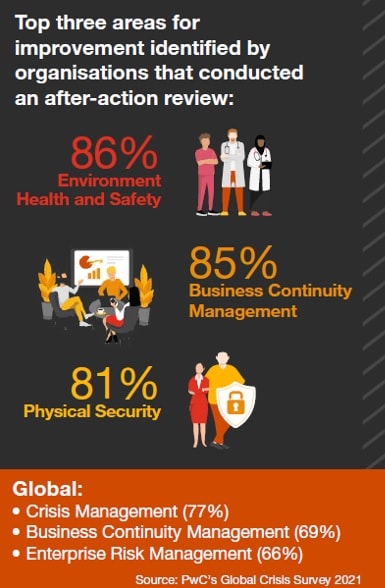
Then and now
Beginning in March 2020, PwC asked global business leaders whether they expected the COVID-19 pandemic to have a significant or critical impact on their organisations. The effect hasn’t been quite as severe in this regard as anticipated, but the fallout from the pandemic is historic, nonetheless — and its threats are still very real.
Some industries were hard-hit; others managed to innovate and thrive.
Overwhelmingly, though, business leaders across all sectors and territories said their most consequential move was to protect their teams: 80 percent agreed (both Global and Indonesia) that their response to the crisis took into consideration the physical and emotional needs of their employees.
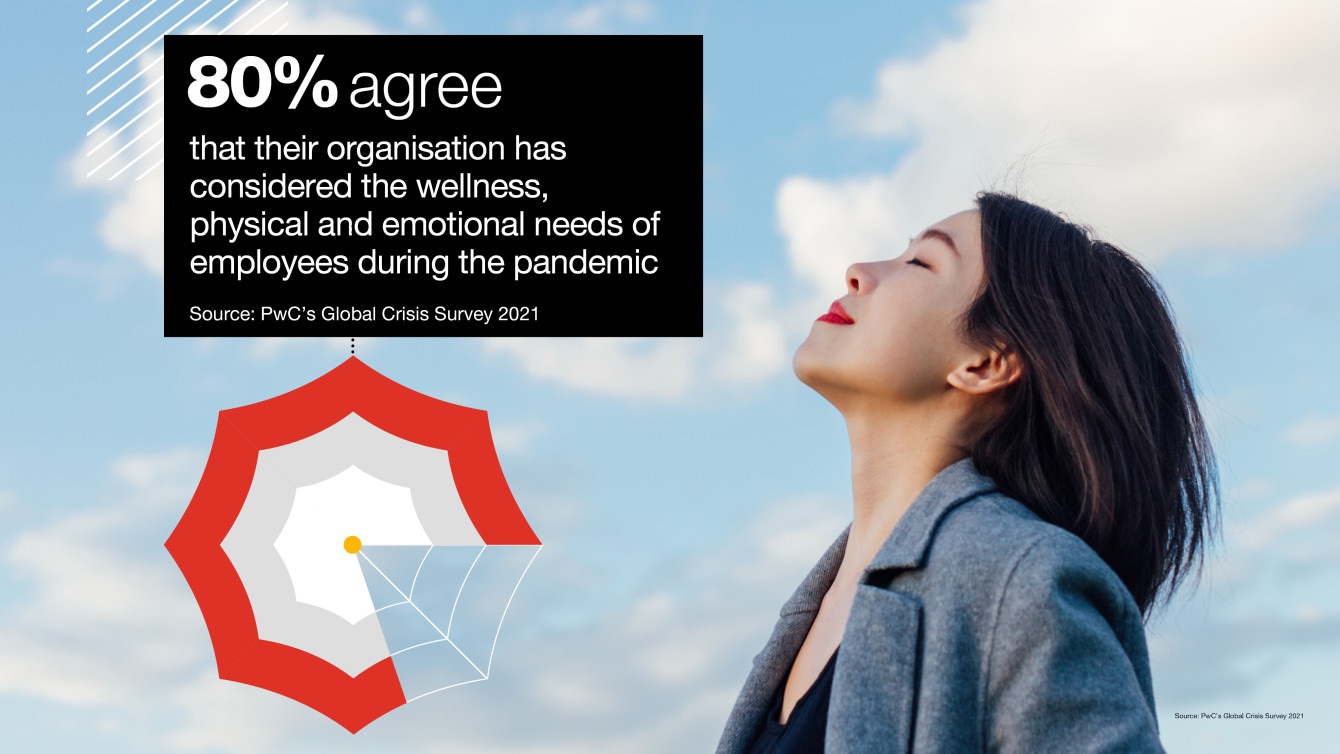
How sectors have fared
The crisis has had varying effects on sectors. While few will emerge unscathed, hospitality and leisure and higher education report the highest percentage of negative impacts.
Which sectors have taken the hardest hit?
%
Hospitality and Leisure
%
Higher Education
Organisation in these sectors experienced 'negative' and 'significant negative' impact:

*Indonesia does not have sufficient responses to draw reliable conclusions for this question.
Major organisational areas have been negatively affected, with operation and supply chain and workforces the most heavily impacted
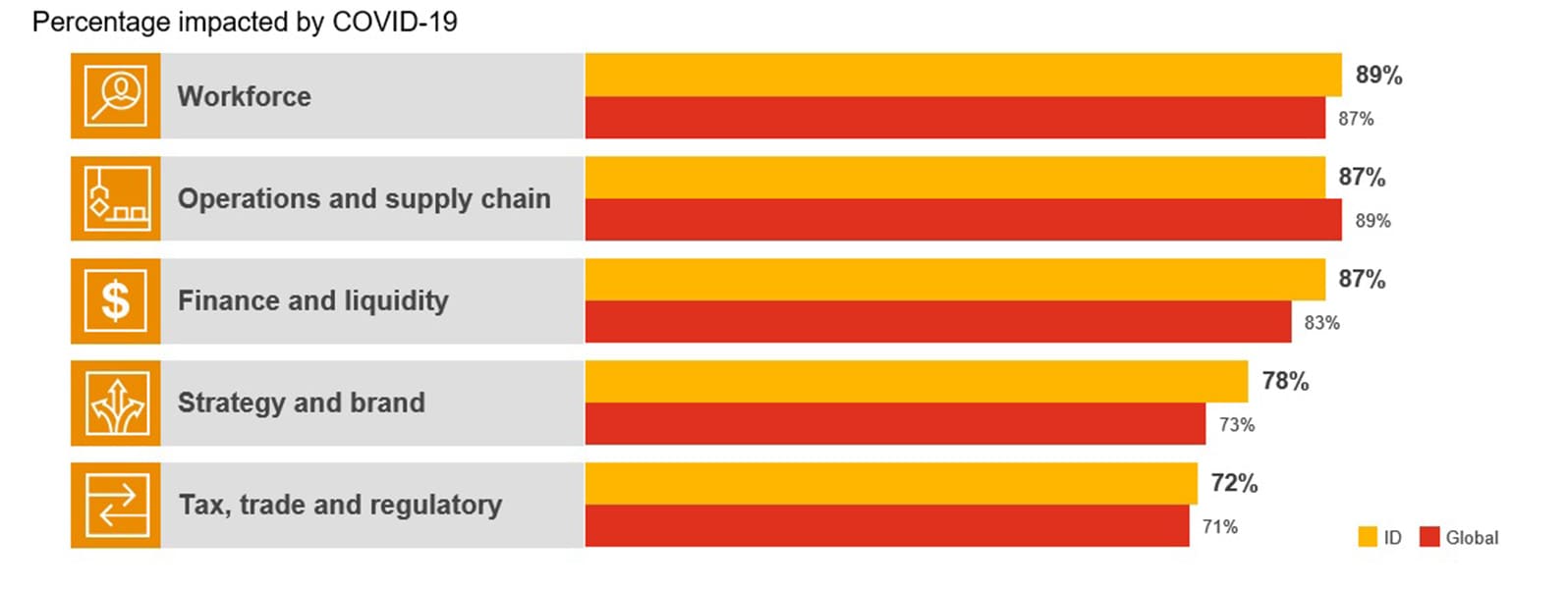
Building Resilience
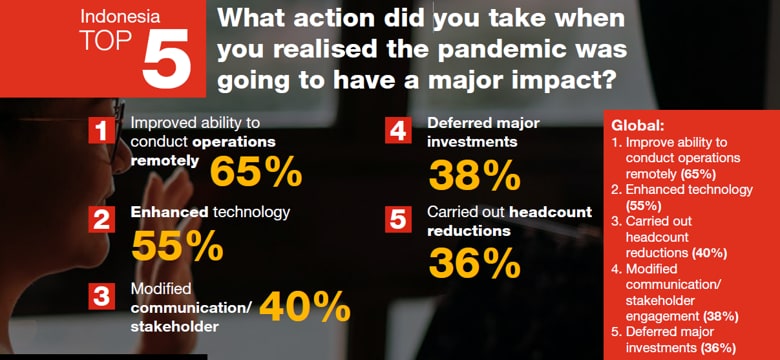
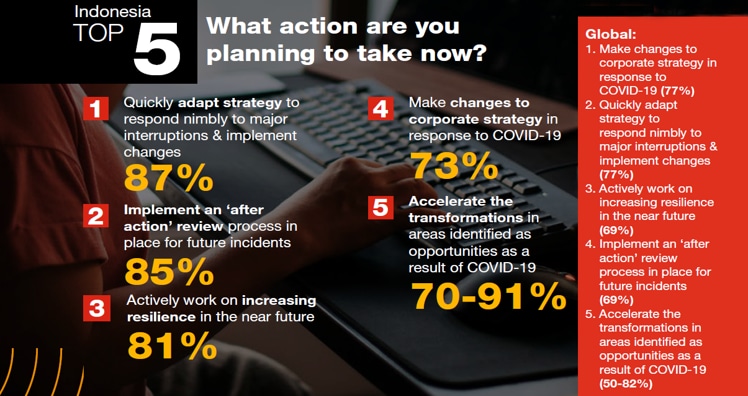

Benchmark your organisation: Take PwC's Global Crisis Survey 2021

PwC's Global Crisis Survey 2021

PwC's Global Crisis Survey 2021 - The Indonesia Update

















